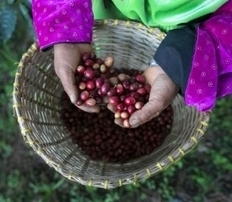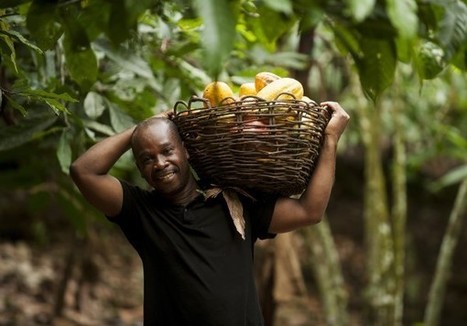Vrijdag 26 juni is het feest bij Moyee Coffee in B.Amsterdam. De startup in eerlijke koffie heeft zijn eerste first roast uit Kaffa, Ethiopië naar Nederland gehaald. Dat beschouwt het als een mijlpaal: als eerste koffie-importeur ter wereld laat Moyee bonen branden in het land van herkomst. Dat levert de ondernemers daar een hogere opbrengst op dan de export van rauwe bonen.
Get Started for FREE
Sign up with Facebook Sign up with X
I don't have a Facebook or a X account
 Your new post is loading... Your new post is loading...
Samantha Groen's curator insight,
March 18, 2015 2:51 PM
I loved this article. This article should be shown in class. The person who wrote this wanted to change the way people think about purchasing from companies regarding sweatshops. They focus on instead of asking "Where can I get clothes that weren't made in sweatshops?" they want people to start asking "How can I persuade companies to do more to improve the conditions of the workers on the ground?" So instead of focusing on buying elsewhere they are redirecting the though to doing something better for the people who are already working.
If more people thought this way then maybe companies can be persuaded to do better. Instead of customers looking for another brand they can help to build an even better brand. The hope is that people will stretch beyond their beliefs that if what they are buying or wearing is better for social reasons or environmental reasons that they don't have to do anything else about it. Just buying well is not enough. The more people who help the closer we will be to change.
I agree wholeheartedly with these thoughts. |
|






















